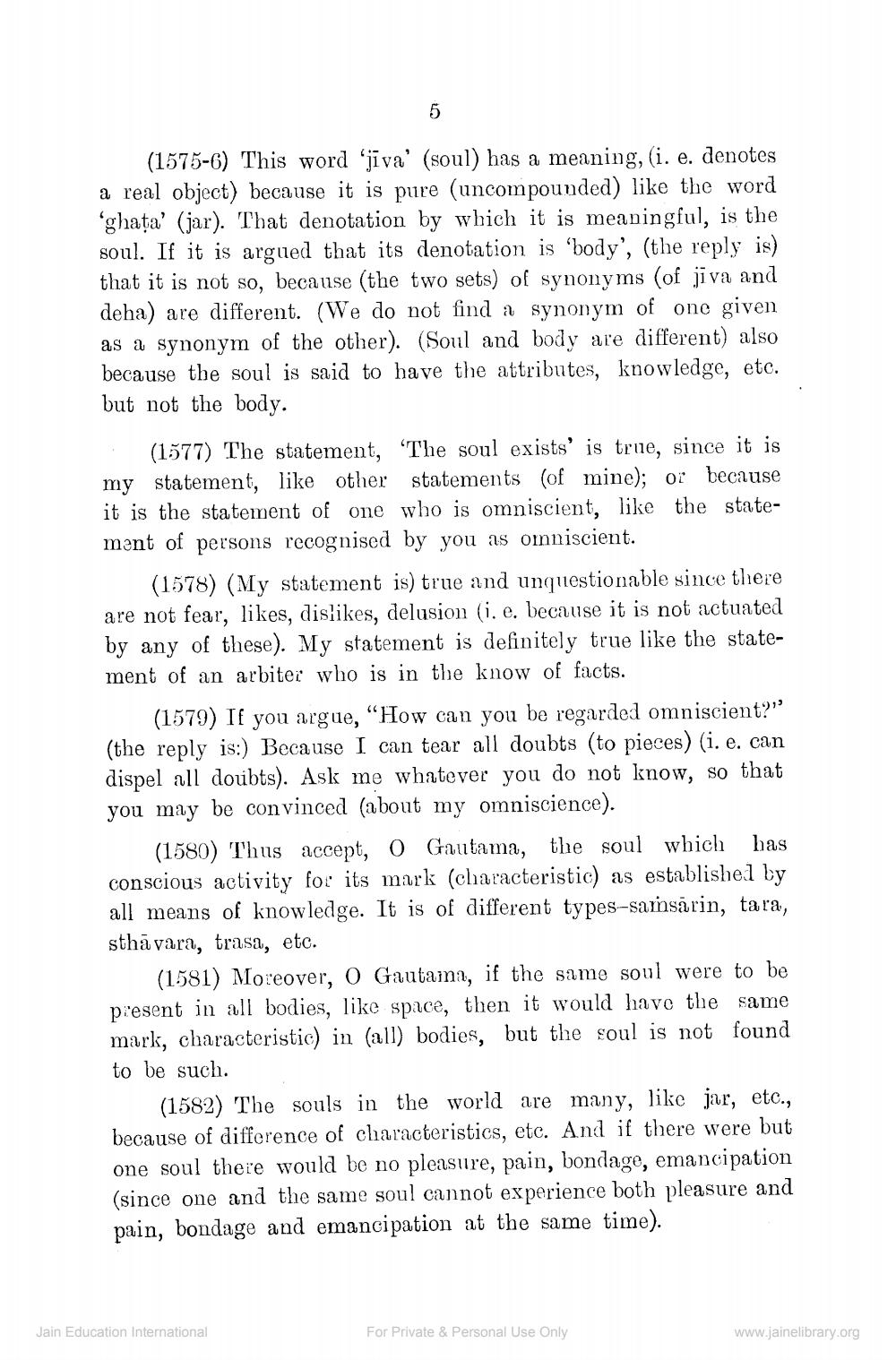________________
(1575-6) This word 'jīva' (soul) has a meaning, (i. e. denotes a real object) because it is pure (uncompounded) like the word ‘ghata' (jar). That denotation by which it is meaningful, is the soul. If it is argued that its denotation is 'body', (the reply is) that it is not so, because (the two sets) of synonyms (of jīva and deha) are different. (We do not find a synonym of one given as a synonym of the other). (Soul and body are different) also because the soul is said to have the attributes, knowledge, etc. but not the body.
(1577) The statement, The soul exists' is true, since it is my statement, like other statements (of mine); or because it is the statement of one who is omniscient, like the statement of persons recognised by you as omniscient.
(1578) (My statement is) true and unquestionable since there are not fear, likes, dislikes, delusion (i. e. because it is not actuated by any of these). My statement is definitely true like the statement of an arbiter who is in the know of facts.
(1579) If you argue, “How can you be regarded omniscient?” (the reply is:) Because I can tear all doubts (to pieces) (i. e. can dispel all doubts). Ask me whatever you do not know, so that you may be convinced (about my omniscience).
(1580) Thus accept, O Gautama, the soul which has conscious activity for its mark (characteristic) as establishel by all means of knowledge. It is of different types-samsarin, tara, sthāvara, trasa, etc.
(1581) Moreover, O Gautams, if the same soul were to be present in all bodies, like space, then it would have the same mark, characteristic) in (all) bodies, but the soul is not found to be such.
(1582) The souls in the world are many, like jar, etc., because of difference of characteristics, etc. And if there were but one soul there would be no pleasure, pain, bondage, emancipation (since one and the same soul cannot experience both pleasure and pain, bondage and emancipation at the same time).
Jain Education International
For Private & Personal Use Only
www.jainelibrary.org




